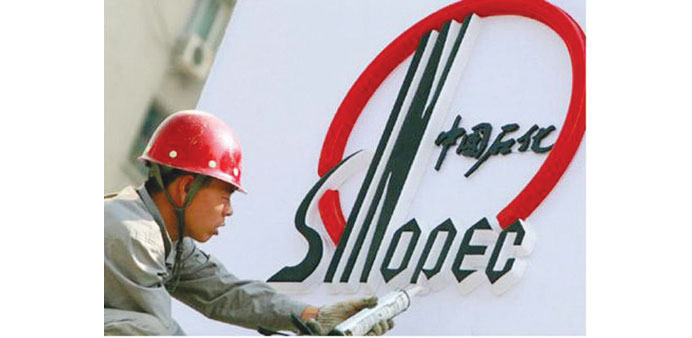Reuters
Canadian retailer Alimentation Couche-Tard and China’s Tencent Holdings are among suitors short-listed to buy a $16bn minority stake in China’s Sinopec Sales, the world’s largest fuel retail network, people familiar with the matter told Reuters.
China Life Insurance Co, the nation’s biggest insurer, Hong Kong-listed ENN Energy Holdings privately-owned Fosun Group, Hopu Investment Management and Affinity Equity Partners have also progressed to the next round, said the people who declined to be identified as the sale process is confidential.
Formally known as China Petroleum & Chemical Corp, state-run Sinopec plans to sell up to 30% of Sinopec Sales by end-2014 as Beijing restructures state-owned assets. Sinopec Sales booked a net profit of 25.1bn yuan ($4.1bn) in 2013 from over 30,000 service stations and more than 23,000 convenience stores.
While a deal would give investors little control over the company, a likely exit through an initial public offering planned within three years has attracted a wide range of suitors, the people added. Final bids are due by end-August, though it was not clear how many shortlisted bidders are likely to make offers. Couche-Tard, growing rapidly through acquisitions, and ENN are both bidding solo, as is privately owned Chinese investment company New Hope Group, the people said. Sinopec, ENN, Affinity, Tencent, China Life and Fosun all declined to comment. Couche-Tard CFO Raymond Pare also declined to comment in an e-mail. New Hope and did not reply to emails seeking response. Hopu could not be reached for an immediate
comment.
The sale is expected to generate between $16bn-$20bn for Sinopec, money which Asia’s biggest refiner may use the amount to pay down some of its debt and to reinforce upstream investments. The deal is set to value Sinopec Sales at between $53bn-$66bn, giving it a price-to-earnings multiple of 13-16.3, according to Reuters calculations.
Sinopec Sales generated 1.49tn yuan in revenue in 2013, but contribution of non-fuel sales was less than 1% of the total. In the US, for example, non-fuel retail sales accounts for about half the profit for gas stations. Sinopec Sales wants to boost non-fuel sales too and is seeking investors to get into businesses such as car services, telematics, online-to-offline sales, financial services and advertising, the sources said.
Sinopec unveiled plans in February to restructure the business, which also includes oil-products pipelines and storage facilities across China. The company is seeking both domestic and foreign investors, but priority will be given to domestic institutions as per the government’s policy to share the “dividend” of China’s economic growth, Sinopec chairman Fu Chengyu told reporters in March.

